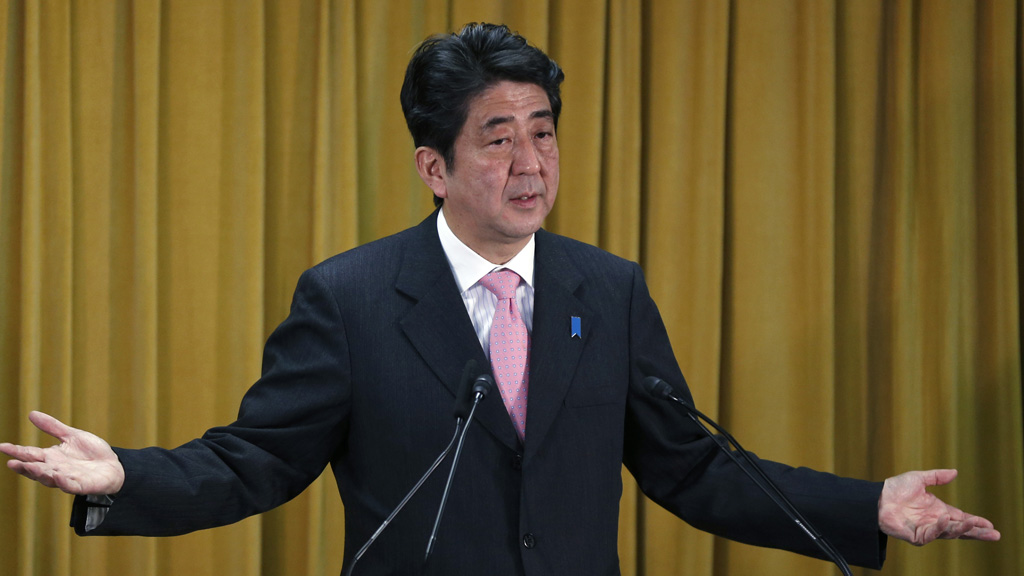Japan’s incoming PM: No room for talks over islands
Japan’s next prime minister, Shinzo Abe, restates the country’s claim to uninhabited East China Sea islands – but vows to work to improve relations with China, which disputes Japan’s claim.

Buoyed by a landslide election victory, Mr Abe said there there was “no room for talks” over the sovereignty of the East China Sea islands, called Senkaku in Japan and Diaoyu in China.
Mr Abe takes over from Yoshihiko Noda, whose Democratic Party he defeated. He vowed to work “persistently” to improve relations with China through dialogue.
He called for a strategic approach, putting ties with China in the context of Japan’s relations with the United States and the Asia-Pacific region.
But he appeared to indicate that improving relationships with the Communist superpower was not his biggest foreign policy priority.
“We need to deepen ties with the rest of Asia including India and Australia, and not only diplomatically, but in the fields of security and energy, before starting to work on improving ties with China,” Abe said.
Long dispute
Security policy and strained relations with Japan’s neighbours were key themes of Abe’s campaign, but officials in his Liberal Democratic Party (LDP) had indicated he will try to avoid a serious clash with China.
Ties between Asia’s two biggest economies took a dive in September after Japan nationalised the islets which lie at the heart of a long dispute, prompting violent protests in China and a stand-off in waters around the isles that has raised fears of a clash.
Ships from both countries have been shadowing each other near the disputed islands and on Thursday, a Chinese government plane entered what Japan considers its airspace over the area. Japan mobilised fighter jets and protested to China in response.
In a bid to underscore Japan’s control, the LDP had promised to consider manning them and building structures on them, a move bound to outrage China.
Shift to right
In his first term in office, Mr Abe surprised many by moving quickly to mend ties with Beijing, but it is thought that his stance toward China will inevitably harden compared with his pervious term following a tilt to the right in Japan’s political sphere.
China’s foreign ministry called on Japan on Monday to “improve healthy and stable ties”, but made no comment on the victory of Mr Abe in Japan’s parliamentary elections.
China’s foreign ministry spokeswoman Hua Chun Tin, said China would “continue to watch the way that Japan is going”, adding that China hoped Japan would “play a constructive role in regional peace and growth”.
Ms Hua also repeated China’s claim to the islands, which are also claimed by Taiwan.
Abe is a China hawk, and his election victory prompted a scornful reaction from Chinese bloggers.
Chinese micro-blog sites on Monday were full of anti-Abe comments, with some calling for a boycott of Japanese goods.